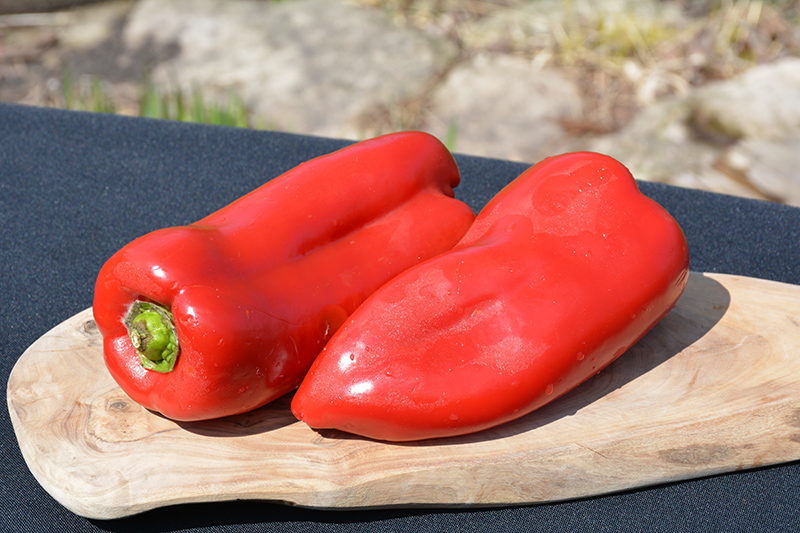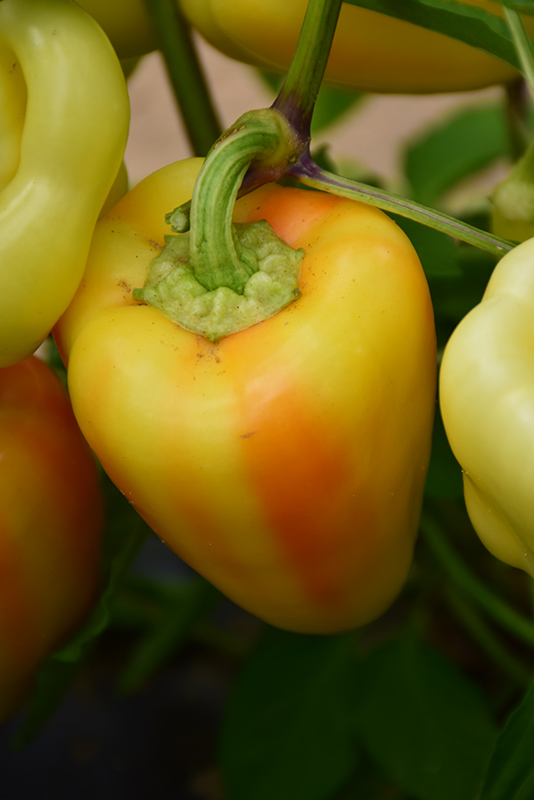Plant Search
Height: 24 inches
Spacing: 18 inches
Sunlight:
![]()
Hardiness Zone: (annual)
Group/Class: Sweet Bell
Description:
A beautiful variety, great for containers, display a rainbow of color all season long; high yields of long tapered fruit; emerging light green and transforming to orange and finally red; crunchy and sweet, perfect for salads, dips, stuffing or freezing
Edible Qualities
Gypsy Sweet Pepper is an annual vegetable plant that is commonly grown for its edible qualities. It produces small light green oblong peppers (which are technically 'berries') with a orange blush which are usually ready for picking from early summer to early fall. The fruit will often fade to red over time. The peppers have a sweet taste and a crunchy texture.
The peppers are most often used in the following ways:
- Fresh Eating
- Eating When Cooked/Prepared
- Cooking
- Baking
- Freezing
Planting & Growing
Gypsy Sweet Pepper will grow to be about 24 inches tall at maturity, with a spread of 12 inches. When planted in rows, individual plants should be spaced approximately 18 inches apart. This vegetable plant is an annual, which means that it will grow for one season in your garden and then die after producing a crop.
This plant is typically grown in a designated vegetable garden. It should only be grown in full sunlight. It does best in average to evenly moist conditions, but will not tolerate standing water. It is not particular as to soil pH, but grows best in rich soils. It is somewhat tolerant of urban pollution. Consider applying a thick mulch around the root zone over the growing season to conserve soil moisture. This is a selected variety of a species not originally from North America.
Gypsy Sweet Pepper is a good choice for the vegetable garden, but it is also well-suited for use in outdoor pots and containers. With its upright habit of growth, it is best suited for use as a 'thriller' in the 'spiller-thriller-filler' container combination; plant it near the center of the pot, surrounded by smaller plants and those that spill over the edges. Note that when growing plants in outdoor containers and baskets, they may require more frequent waterings than they would in the yard or garden.
A NetPS Plant Finder tool



